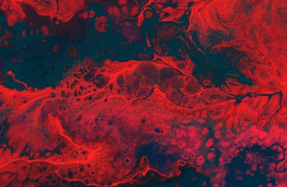Lucile Scott: Mysticism and Resistance
 Three silhouetted women standing in the snow. Via Flickr.
Three silhouetted women standing in the snow. Via Flickr. Cora L.V. Scott, nineteenth-century Spiritualist medium and teenage proto-celebrity, wore her hair in tight ringlets and never arrived at one of her in-demand public lectures without a white rose or large Gothic cross on her person. So we learn from Lucile Scott (who, though not a blood relation of Cora’s, is perhaps a spiritual one) in her book An American Covenant, which peers into the lives of five women and queer mystics from American history. During the 1850s and ’60s, on tour across the country, Cora Scott spoke with candor for the dead—or, rather, the dead spoke through her—about the moral, cultural, and political issues of the day. Evening after evening, crowds gathered to hear “truth, profound and articulate…pouring forth” from Cora, whose combination of traits—“feminine” mien, “masculine” command and priestliness—made her a “sort of divine androgyne antecedent to David Bowie.”
“Mysticism” encompasses many divergent religious traditions in which practitioners can personally access the divine or otherworldly. These traditions center presence and physicality, and—because they usually employ no formalized hierarchy or gatekeeping intermediaries—tend to emphasize an equality of physical bodies. All of us have the potential to tap into the divine.
Fittingly, women and queer people have been at the helm of these movements more frequently than in many more-dominant religious traditions. The five mystics featured in challenged the hard boundaries between assumed categories—masculine/feminine, science/religion, truth/myth, living/deceased—and pushed the perimeters of their assigned spheres of influence. Their work was also deeply entwined with progressive thinking and the social movements of their times, from abolition to suffragism to lesbian separatism. Spiritualists like Cora Scott spoke of the vote for women from the podiums of their widely-attended “trance lectures.” Helena Blavatsky, the self-described “Divine Hermaphrodite” and founder of Theosophy, preached about the “deadening materialism”
You’re reading a preview, subscribe to read more.
Start your free 30 days





